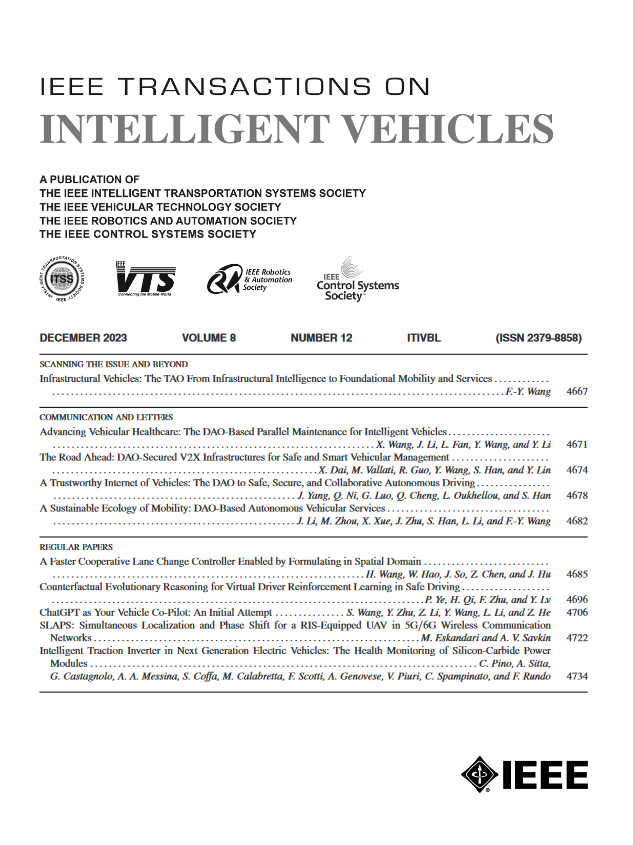动态事件触发协议下船舶系统的障碍功能控制:ADP方法
IF 14.3
1区 工程技术
Q1 COMPUTER SCIENCE, ARTIFICIAL INTELLIGENCE
引用次数: 0
摘要
针对具有动态事件触发机制和状态约束的非线性船舶系统,研究了自适应动态规划(ADP)下约束感知的次优控制方案。设计了一个松弛的障碍函数(RBF)作为代价函数中的惩罚项来代替不等式约束,从而实现对系统状态的约束。利用神经网络逼近非线性动力学,结合RBF上的拉格朗日乘子,采用对偶方法建立了最优控制框架。在这个框架内,拉格朗日乘子被用来平衡控制性能和状态约束的优化。通过严格的数学分析,揭示了数值迭代算法的收敛性。此外,利用Lyapunov稳定性理论,通过一组矩阵不等式计算期望的观测器增益,并推导出相关参数和学习率的充分条件,使得观测器的神经网络和行为者批评神经网络的权重估计误差最终都是有界的。最后,通过船舶系统仿真和数值算例验证了所提方法的有效性。本文章由计算机程序翻译,如有差异,请以英文原文为准。
Barrier-Function-Enabled Control for Vessel Systems Under Dynamic Event-Triggered Protocols: The ADP Approach
In this paper, a constraint-aware suboptimal control scheme under adaptive dynamic programming (ADP) is investigated for nonlinear vessel systems characterized by dynamic event-triggering mechanisms (DETMs) and state constraints. A relaxed barrier function (RBF) is designed as a penalty term in the cost function to replace the inequality constraints, thus achieving constraints on the system state. By resorting to neural network (NN) approximation of the nonlinear dynamics, an optimal control framework is established via the dual method, combined with the Lagrange multipliers on the RBF. Within this framework, the Lagrangian multipliers are employed to balance the optimisation of control performance and state constraints. The convergence of value iteration algorithms is revealed through rigorously mathematical analysis. Furthermore, by using the Lyapunov stability theory, the desired observer gain is calculated via a set of matrix inequalities, and sufficient conditions for the relevant parameters and learning rates are derived such that the weight estimation errors of both the observer's NNs and the actor-critic NNs are ultimately bounded. Finally, simulations of both vessel systems and numerical examples are used to validate the effectiveness of the proposed method.
求助全文
通过发布文献求助,成功后即可免费获取论文全文。
去求助
来源期刊

IEEE Transactions on Intelligent Vehicles
Mathematics-Control and Optimization
CiteScore
12.10
自引率
13.40%
发文量
177
期刊介绍:
The IEEE Transactions on Intelligent Vehicles (T-IV) is a premier platform for publishing peer-reviewed articles that present innovative research concepts, application results, significant theoretical findings, and application case studies in the field of intelligent vehicles. With a particular emphasis on automated vehicles within roadway environments, T-IV aims to raise awareness of pressing research and application challenges.
Our focus is on providing critical information to the intelligent vehicle community, serving as a dissemination vehicle for IEEE ITS Society members and others interested in learning about the state-of-the-art developments and progress in research and applications related to intelligent vehicles. Join us in advancing knowledge and innovation in this dynamic field.
 求助内容:
求助内容: 应助结果提醒方式:
应助结果提醒方式:


